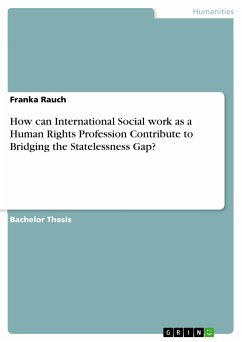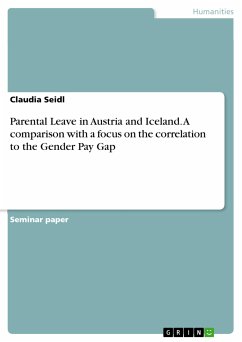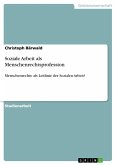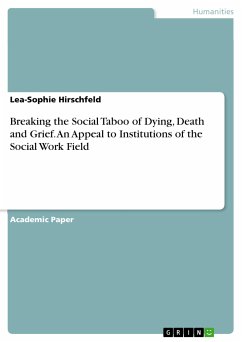Bachelor Thesis from the year 2018 in the subject Social Work, grade: 1,0, University of Applied Sciences Coburg, language: English, abstract: With the term statelessness gap, I refer to a phenomenon of exclusion that has multiple dimensions: The statelessness gap describes the phenomenon of millions of people being denied a nationality through gaps in the implementation of human rights norms, but also in the legal system of human rights itself. The statelessness gap also implies that there are gaps in the ways we understand and practice human rights, how we understand belonging and inclusion and how much we are willing to expand our perspectives beyond the legal narratives that describe our world. The journey of exploring the statelessness gap and relevant social work engagement passes through three chapters: Firstly, I will map the terrain of the statelessness gap, contouring the phenomenon in its magnitude, constitution and severity. Then I will give an overview of the international responses to statelessness within the legal human rights system. For moving from what is to what could be, I will explore why statelessness matters to social work and on which basis social work can take action. Lastly, the human rights mandate in social work will inform three suggestions for social work action towards inclusion and belonging that could help to bridge the statelessness gap.
Dieser Download kann aus rechtlichen Gründen nur mit Rechnungsadresse in A, B, BG, CY, CZ, D, DK, EW, E, FIN, F, GR, HR, H, IRL, I, LT, L, LR, M, NL, PL, P, R, S, SLO, SK ausgeliefert werden.









